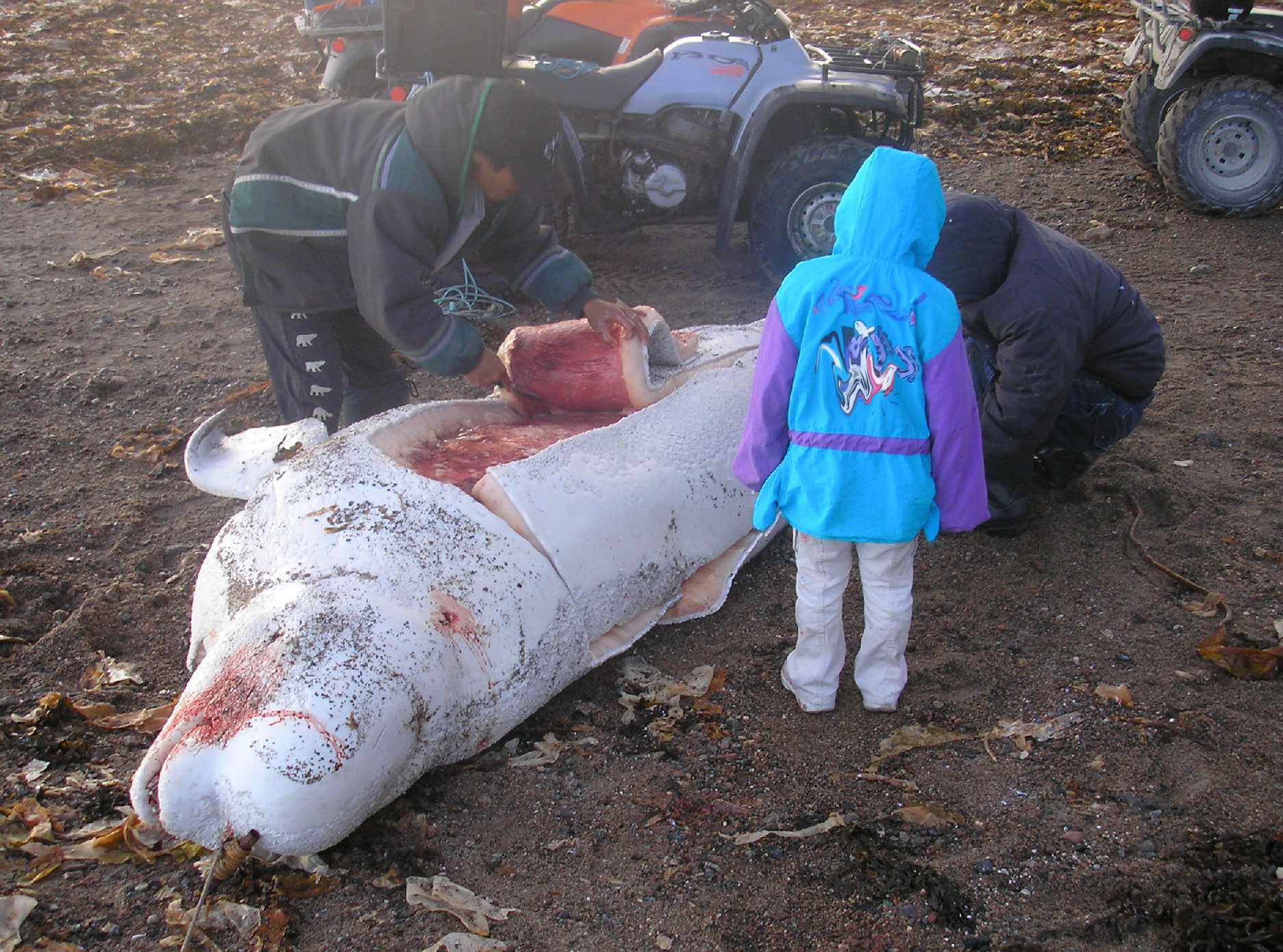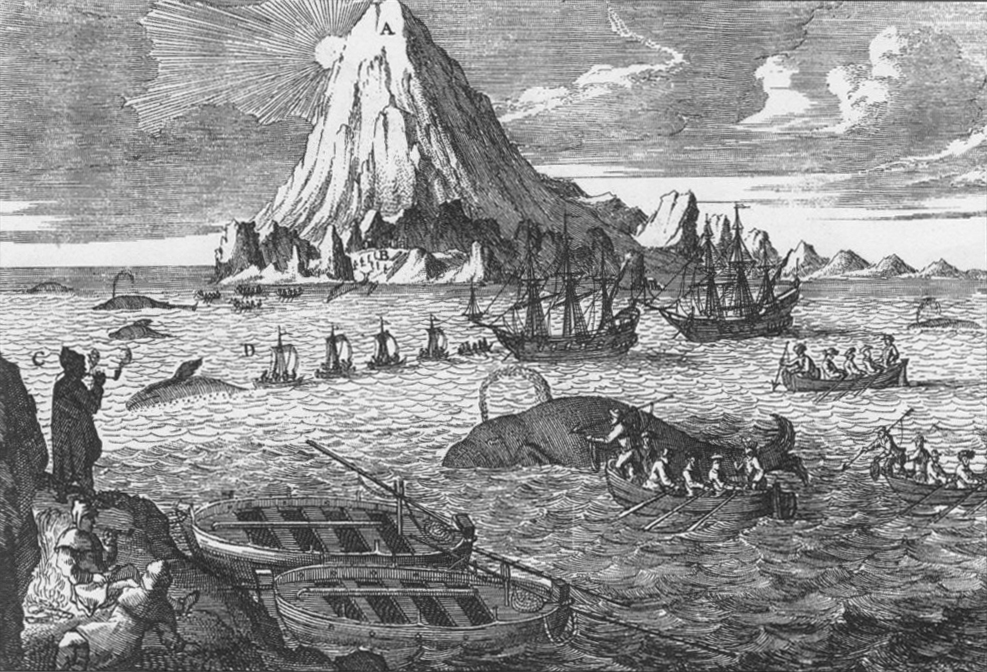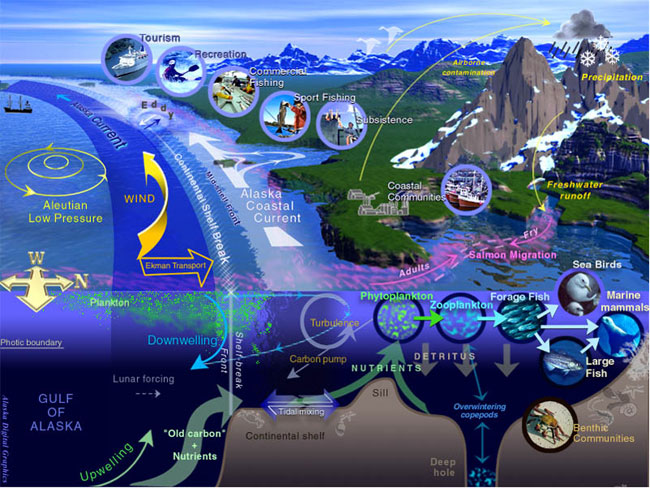|
Marine Conservation Activism
Marine conservation activism is the efforts of non-governmental organizations and individuals to bring about social and political change in the area of marine conservation. Marine conservation is properly conceived as a set of management strategies for the protection and preservation of ecosystems in oceans and seas. Activists raise public awareness and support for conservation, while pushing governments and corporations to practice sound ocean management, create conservation policy, and enforce existing laws and policy through effective regulation. There are many different kinds of organizations and agencies that work toward these common goals. They all are a part of the growing movement that is ocean conservation. These organizations fight for many causes including stopping pollution, overfishing, whaling and by-catching, and supporting marine protected areas. History United States Though the environmental movement began in the United States during the 1960s, the idea of marine ... [...More Info...] [...Related Items...] OR: [Wikipedia] [Google] [Baidu] |
Anti-whaling
Anti-whaling refers to actions taken by those who seek to end whaling in various forms, whether locally or globally in the pursuit of marine conservation. Such activism is often a response to specific conflicts with pro-whaling countries and organizations that practice commercial whaling and/or research whaling, as well as with indigenous groups engaged in subsistence whaling. Some anti-whaling factions have received criticism and legal action for extreme methods including violent direct action. The term ''anti-whaling'' may also be used to describe beliefs and activities related to these actions. History Anti-whaling activism has a short history compared to other forms of activism and environmental awareness. Early members of environmental organizations began protesting whale hunts around the world in the 20th century. These actions were in direct response to the global depletion of whale populations due to over-exploitation by the whaling industry and the failure of intern ... [...More Info...] [...Related Items...] OR: [Wikipedia] [Google] [Baidu] |
The Cove (film)
''The Cove'' is a 2009 American documentary film directed by Louie Psihoyos that analyzes and questions dolphin hunting practices in Japan. It was awarded the Academy Award for Best Documentary Feature in 2010. The film is a call to action to halt mass dolphin kills and captures, change Japanese fishing practices, and inform and educate the public about captivity and the increasing hazard of mercury poisoning from consuming dolphin meat. Psihoyos is a former-National Geographic photographer and a co-founder of the Oceanic Preservation Society, and the film is presented from an ocean conservationist's point of view. Portions were filmed secretly in 2007 using underwater microphones and high-definition cameras disguised as rocks."Dolphin slaughter film a hit at Sundance" '' |
Humpback Whale
The humpback whale (''Megaptera novaeangliae'') is a species of baleen whale. It is a rorqual (a member of the family Balaenopteridae) and is the only species in the genus ''Megaptera''. Adults range in length from and weigh up to . The humpback has a distinctive body shape, with long pectoral fins and tubercles on its head. It is known for breaching and other distinctive surface behaviors, making it popular with whale watchers. Males produce a complex song typically lasting 4 to 33 minutes. Found in oceans and seas around the world, humpback whales typically migrate up to each year. They feed in polar waters and migrate to tropical or subtropical waters to breed and give birth. Their diet consists mostly of krill and small fish, and they use bubbles to catch prey. They are promiscuous breeders, with both sexes having multiple partners. Orcas are the main natural predators of humpback whales. Like other large whales, the humpback was a target for the whaling industry. ... [...More Info...] [...Related Items...] OR: [Wikipedia] [Google] [Baidu] |
Aboriginal Whaling
Indigenous whaling is the hunting of whales by indigenous peoples recognised by either IWC (International Whaling Commission) or the hunting is considered as part of indigenous activity by the country. It is permitted under international regulation, but in some countries remains a contentious issue. (The hunting of smaller cetaceans is covered at Dolphin drive hunting.) It is usually considered part of the subsistence economy. In some places whaling has been superseded by whale watching instead. This article deals with communities that continue to hunt; details about communities that have ended the practice may be found at History of whaling. International regulation Under the terms of the 1986 moratorium, the International Whaling Commission allows the activity to be carried out by aboriginal groups if it occurs on a subsistence basis, similar to subsistence fishing. This Aboriginal Subsistence Whaling is restricted to native peoples and others working on their behalf, as d ... [...More Info...] [...Related Items...] OR: [Wikipedia] [Google] [Baidu] |
International Whaling Commission
The International Whaling Commission (IWC) is a specialised regional fishery management organisation, established under the terms of the 1946 International Convention for the Regulation of Whaling (ICRW) to "provide for the proper conservation of whale stocks and thus make possible the orderly development of the whaling industry". As the decision-making body of the convention, the IWC reviews and revises measures laid down in the "Schedule to the Convention", which govern the conduct of whaling throughout the world. These measures include conferring complete protection of certain species; designate specific areas as whale sanctuaries; set limits on the numbers and size of whales which may be taken; prescribe open and closed seasons and areas for whaling; and prohibit the capture of suckling calves and female whales accompanied by calves. The Commission also mandates the compilation of catch reports and other statistical and biological records, and is actively involved in whale res ... [...More Info...] [...Related Items...] OR: [Wikipedia] [Google] [Baidu] |
Whale
Whales are a widely distributed and diverse group of fully aquatic placental marine mammals. As an informal and colloquial grouping, they correspond to large members of the infraorder Cetacea, i.e. all cetaceans apart from dolphins and porpoises. Dolphins and porpoises may be considered whales from a formal, cladistic perspective. Whales, dolphins and porpoises belong to the order Cetartiodactyla, which consists of even-toed ungulates. Their closest non-cetacean living relatives are the hippopotamuses, from which they and other cetaceans diverged about 54 million years ago. The two parvorders of whales, baleen whales (Mysticeti) and toothed whales (Odontoceti), are thought to have had their last common ancestor around 34 million years ago. Mysticetes include four extant (living) families: Balaenopteridae (the rorquals), Balaenidae (right whales), Cetotheriidae (the pygmy right whale), and Eschrichtiidae (the grey whale). Odontocetes include the Monodontidae (beluga ... [...More Info...] [...Related Items...] OR: [Wikipedia] [Google] [Baidu] |
Whaling
Whaling is the process of hunting of whales for their usable products such as meat and blubber, which can be turned into a type of oil that became increasingly important in the Industrial Revolution. It was practiced as an organized industry as early as 875 AD. By the 16th century, it had risen to be the principal industry in the Basque coastal regions of Spain and France. The industry spread throughout the world, and became increasingly profitable in terms of trade and resources. Some regions of the world's oceans, along the animals' migration routes, had a particularly dense whale population, and became the targets for large concentrations of whaling ships, and the industry continued to grow well into the 20th century. The depletion of some whale species to near extinction led to the banning of whaling in many countries by 1969, and to an international cessation of whaling as an industry in the late 1980s. The earliest known forms of whaling date to at least 3000 BC. Coasta ... [...More Info...] [...Related Items...] OR: [Wikipedia] [Google] [Baidu] |
Whaling In The Faroe Islands
Whaling in the Faroe Islands, or (from the Faroese terms , meaning pilot whale, and , meaning killing), is a type of drive hunting that involves herding various species of whales and dolphins, but primarily pilot whales, into shallow bays to be beached, killed, and butchered. Each year, an average of around 700 long-finned pilot whales and several hundred Atlantic white-sided dolphins are caught over the course of the hunt season during the summer. The practice dates back to the 9th century, and many Faroe Islanders consider eating whales to be an important part of their history. Since 1948, the hunt has been regulated by the Faroese authorities, required its participants to be trained, involved modern boats and communications, and been supervised by police. The hunt has been under increasing scrutiny since the 1980s. Domestically, concerns have arisen over the potential toxicity of whale meat, particularly for young children and pregnant women. Internationally, animal ri ... [...More Info...] [...Related Items...] OR: [Wikipedia] [Google] [Baidu] |
Marine Life
Marine life, sea life, or ocean life is the plants, animals and other organisms that live in the salt water of seas or oceans, or the brackish water of coastal estuaries. At a fundamental level, marine life affects the nature of the planet. Marine organisms, mostly microorganisms, produce oxygen and sequester carbon. Marine life in part shape and protect shorelines, and some marine organisms even help create new land (e.g. coral building reefs). Most life forms evolved initially in marine habitats. By volume, oceans provide about 90% of the living space on the planet. The earliest vertebrates appeared in the form of fish, which live exclusively in water. Some of these evolved into amphibians, which spend portions of their lives in water and portions on land. One group of amphibians evolved into reptiles and mammals and a few subsets of each returned to the ocean as sea snakes, sea turtles, seals, manatees, and whales. Plant forms such as kelp and other algae grow in the wat ... [...More Info...] [...Related Items...] OR: [Wikipedia] [Google] [Baidu] |
Ocean Conservancy
Ocean Conservancy (founded as The Delta Corporation) is a nonprofit environmental advocacy group based in Washington, D.C., United States. The organization formulates ocean policy at the federal and state government levels based on peer reviewed science. About The Ocean Conservancy promotes healthy and diverse ocean ecosystems and opposes practices that threaten oceanic and human life. Through several program areas, Ocean Conservancy advocates for protecting special marine habitats, restoring sustainable fisheries, reducing the human impact on ocean ecosystems and managing U.S. ocean resources. Ocean Conservancy is a tax-exempt non-profit organization. It meets the Better Business Bureau's 20 Standards for Charity Accountability. History Ocean Conservancy was founded in 1972 to promote healthy and safe ocean ecosystems and to help prevent things that threaten oceanic and human life. The conservancy's main concern was to restore sustainable American fisheries and protect wildl ... [...More Info...] [...Related Items...] OR: [Wikipedia] [Google] [Baidu] |
Marine Debris On Hawaiian Coast
Marine is an adjective meaning of or pertaining to the sea or ocean. Marine or marines may refer to: Ocean * Maritime (other) * Marine art * Marine biology * Marine debris * Marine habitats * Marine life * Marine pollution Military * Marines, a naval-based infantry force ** United States Marine Corps ** Royal Marines of the UK ** Brazilian Marine Corps ** Spanish Marine Infantry ** Fusiliers marins (France) ** Indonesian Marine Corps ** Republic of China Marine Corps ** Republic of Korea Marine Corps ** Royal Thai Marine Corps *"Marine" also means "navy" in several languages: ** Austro-Hungarian Navy () ** Belgian Navy (, , ) ** Royal Canadian Navy () *** Provincial Marine (1796–1910), a predecessor to the Royal Canadian Navy ** Navy of the Democratic Republic of the Congo () ** Royal Danish Navy () ** Finnish Navy (, ) ** French Navy () ** Gabonese Navy () ** German Navy () ** Royal Moroccan Navy () ** Royal Netherlands Navy () ** Swedish Navy () Places * Marin ... [...More Info...] [...Related Items...] OR: [Wikipedia] [Google] [Baidu] |
Friend Of The Sea
Friend of the Sea is a project of the World Sustainability Organization for the certification and promotion of seafood from sustainable fisheries and sustainable aquaculture. It is the only certification scheme which, with the same logo, certifies both wild and farmed seafood. Overview Friend of the Sea was started in 2008, by environmentalist and economist Paolo Bray, Director of International Programs of the Dolphin-Safe Tuna program and as a project of the Earth Island Institute, the NGO which operates the successful International Dolphin-Safe project. Some of the main world retailers participate, such as Carrefour, Coop Italia, Manor, Finiper, Aligro, Citysuper, Coldstorage, Conad, Despar, Esselunga, Fairprice, Lidl, Metro, Rewe, Spar, Walgreens, Walmart. Some important producers also have their products certified. Friend of the Sea's mission, in line with the United Nations 2020 Sustainable Development Goal 14, is to use its ecolabel and conservation projects and campaign ... [...More Info...] [...Related Items...] OR: [Wikipedia] [Google] [Baidu] |









.jpg)
